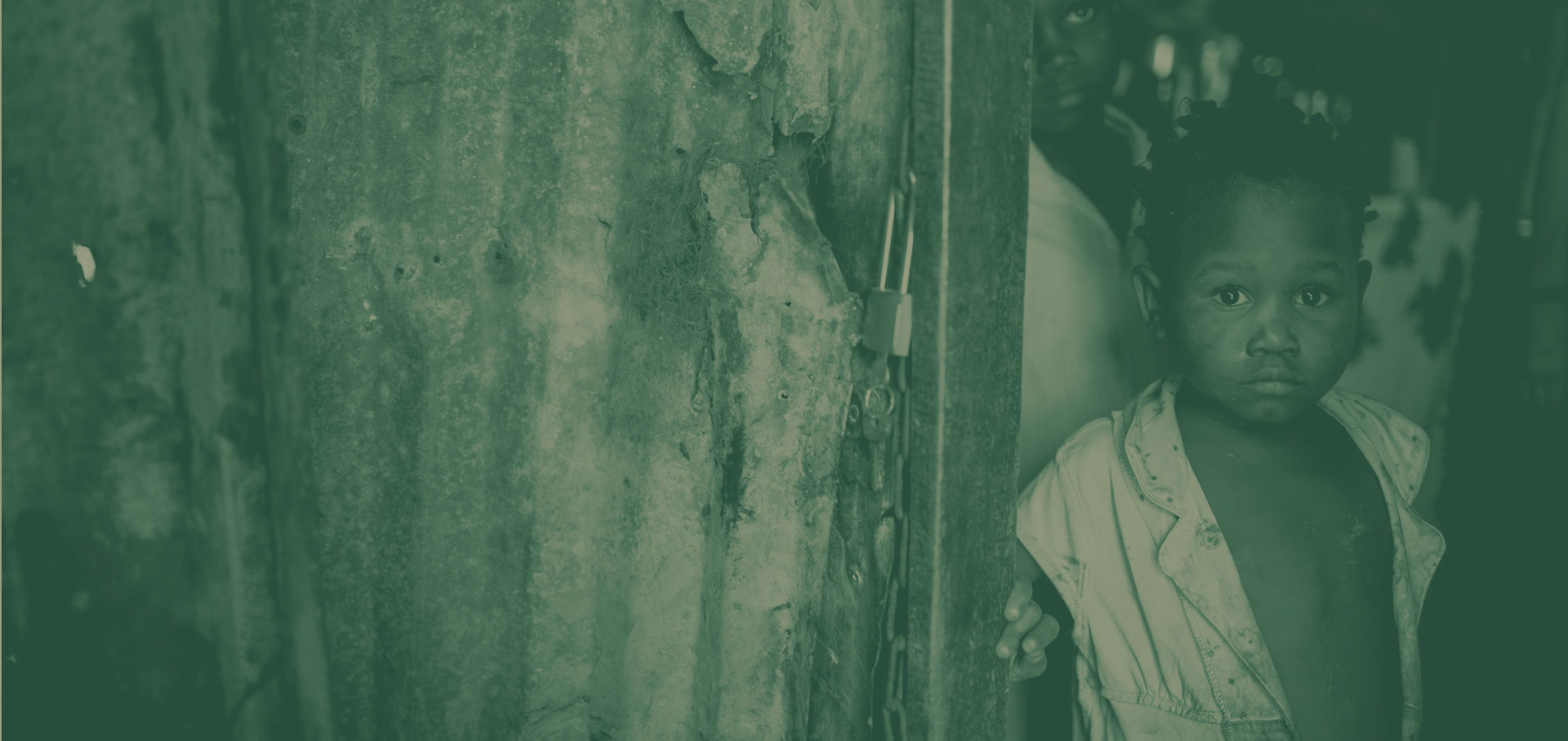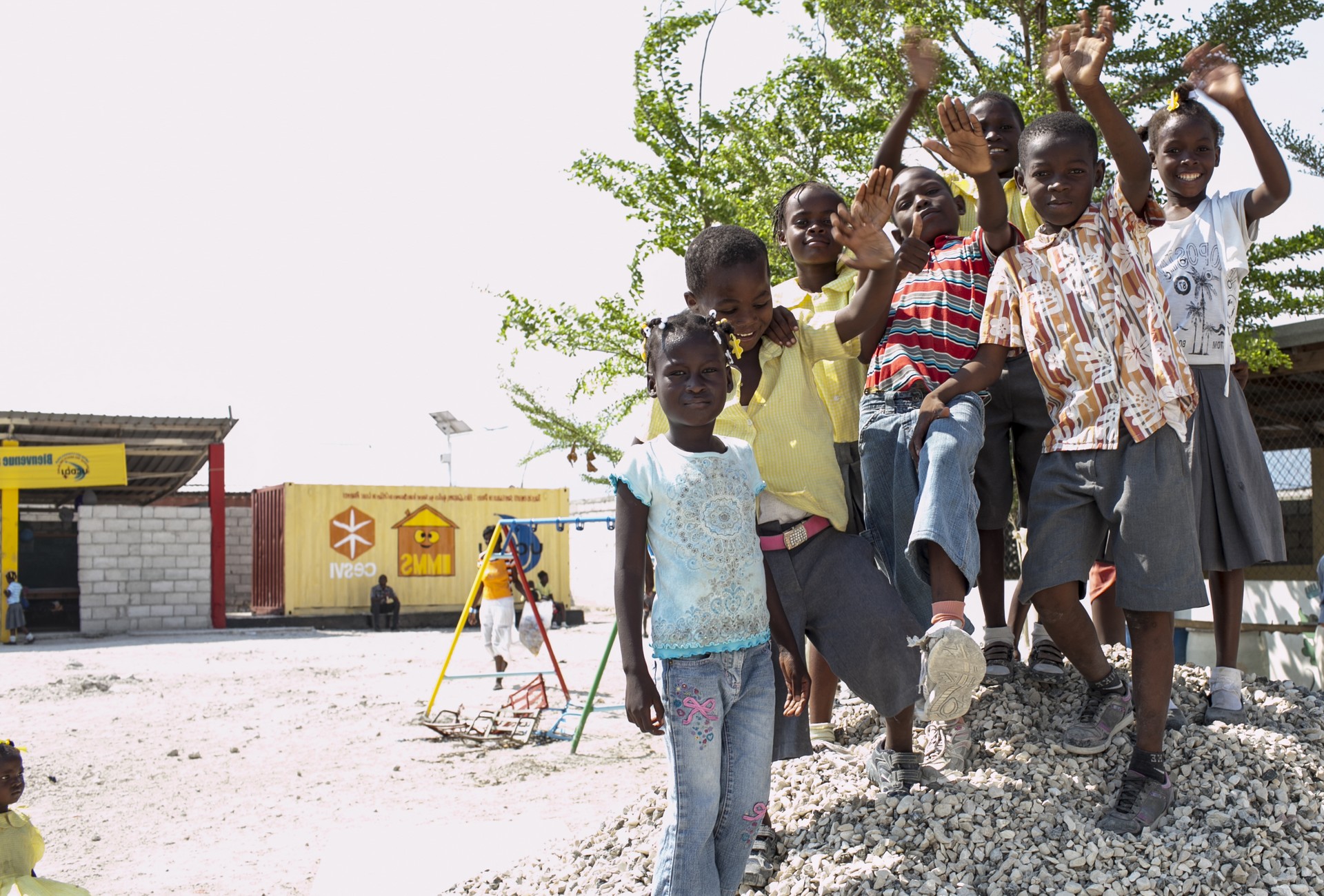In Haiti, following the earthquake in 2010 and the recent political/military disturbances, the rights of children are infringed every day. Their living conditions are unacceptable: a childhood denied without access to food, drinking water or health services.
Haiti has the highest infant mortality in Latin America with more than 1 child in ten not reaching the age of five. Almost 50% of the children don’t have access to schooling and, in the capital alone, about 2000 minors live on the streets.
Because of the current situation in the country, with malnutrition, epidemics, shortage of food, contaminated water and inadequate medical care, an ever increasing number of children are abandoned and deprived of their childhood.
At Jeremie Wharf, one of the poorest and most needy quarters of the capital Port-au-Prince, the extreme poverty makes it difficult for families to meet their daily needs. Violence and desperation feed insecurity, children’s rights are constantly denied, their homes are hovels built of sheet metal and cardboard, the air is suffocating.
In this enormous tip open to the sky there is no electricity, no toilets and along the roads there are stinking streams of rubbish and dirt. Here the children lack everything: food, water, medical treatment and psychological support. In this very shanty town Cesvi has set up one of the Houses of Smiles to deal with nutrition, safety, protection, education and training in order to guarantee physical and mental wellbeing for 300 children. It’s important that these children go to school, among other things to overcome the still vivid trauma of the earthquake and the recent hurricane, of the losses suffered and the discomfort of living in a tent city. The House of Smiles represents a friendly space for them, a light in the darkness which leads them towards an independent future and redemption.
A dream for Christella

Christella lives at Jeremie Wharf, on the outskirts of Port-au-Prince, in a hut made of rags and sheet metal which she calls “home”. She is thin and has breathing problems because of severe asthma caused by the atmosphere polluted by burnt plastic and open drains. Her dirty face and tattered clothes tell of despair that at her age one should never know. And yet her heart holds a dream. It shows in her eyes, in spite of all the struggles of those used to hunger and poverty. The dream is that some time something might change. Recently something in her life really began to change, because the Cesvi operatives are taking care of her and her sister and mother. In the House of Smiles Christella has at last the opportunity to receive medical attention, food, psychological support and schooling. When she grows up she wants to be a teacher, for the time being she has found new hope in a better future.
